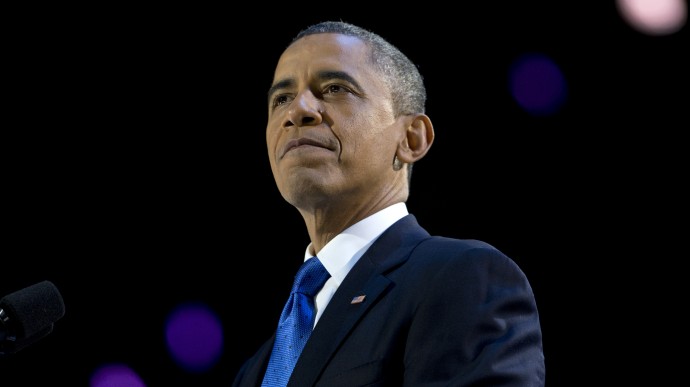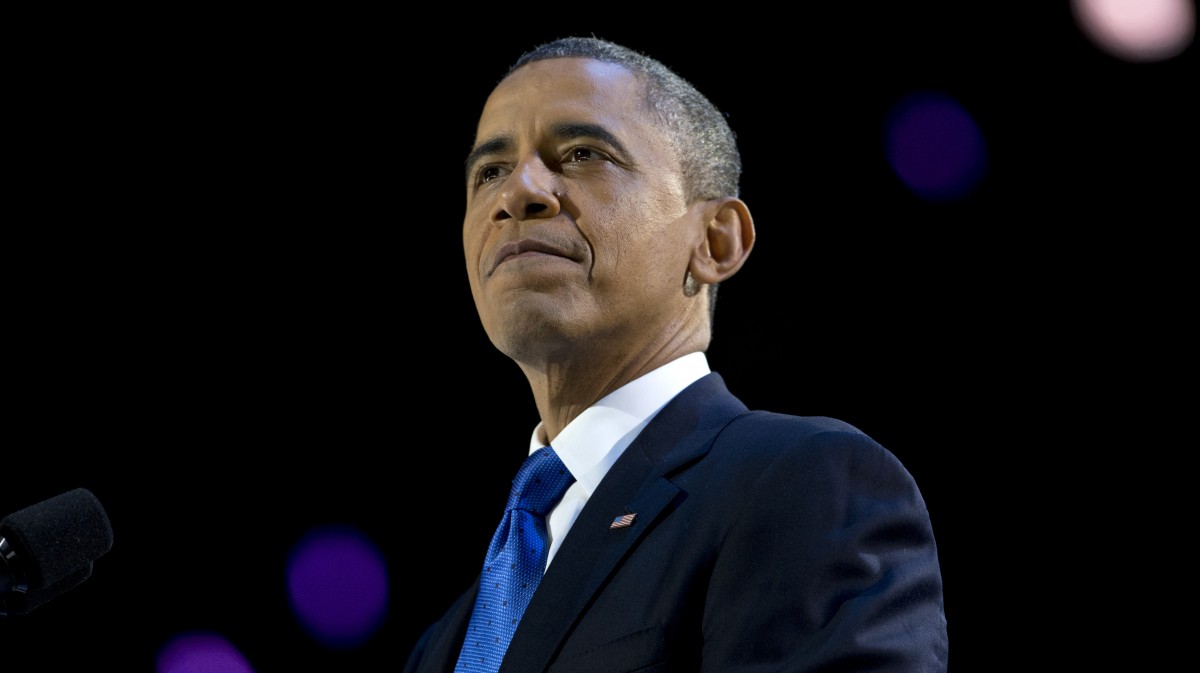
(MintPress) – As the nation prepares to usher in a new year, the world of politics is preparing for the second inauguration of President Barack Obama. In 2008, the event was historic, moving people from across political aisles to tune in to a moment that surely will appear years from now in children’s textbooks.
With a nation divided between political lines that have only grown wider over the last four years, there will be two types of people tuning in to the inauguration: those celebrating and those cringing.
So, what has Obama done over his last term that has caused him both fanfare and hatred? The nation’s debt has risen and drone strikes — particularly in Pakistan — have resulted in civilian deaths and new ways of labeling exactly who civilians are.
Yet, it seems there are at least some moves to be applauded, even if gently so.
The war in Iraq came to a close, as promised by the president. Immigration reform, allowing young undocumented workers who came here as children to apply for temporary work visas, came into play — a move that was applauded even by conservatives who acknowledged the need to take action. And, depending on where one stands on the issue, Obama evolved on the issue of gay marriage, acknowledging he supported the union.
There was also the passage of Obamacare, requiring all Americans to purchase health insurance — a move intended on lowering the rates, creating affordable health care for all Americans.
And, of course, who can forget the death of Osama bin Laden. As Vice President Joe Biden put it famously in campaign stops around the nation: “Osama bin Laden is dead, and General Motors is alive.”
Below is a closer look at the issues that made Obama both a hero and a failure in the eyes of the American public.
National debt
Under Obama, the nation’s debt rose to $16 trillion — $5 trillion of which was accumulated under his watch. This has been one of the major issues of Obama’s first presidential term — it generated the passion that fueled the tea party movement, made up of conservatives who blamed the president for all of it — even the debt he inherited.
The issue caused squabbles between political parties, with both acknowledging the need to draw down the debt, although disagreeing on how to do so. In 2011, the political divide grew even greater when Congress raised the debt ceiling — a move that was opposed heavily by conservatives.
While there was outrage, the debt ceiling more than doubled between 2000 and 2010 — eight years which belonged to the presidency of George W. Bush. The debt ceiling is once again an issue, alongside the so-called fiscal cliff, as the president and Democrats grapple over where to cut programs and raise taxes.
Drone strikes
The covert U.S. drone strike operation crept into the American spotlight, thanks to the work of organizations like Code Pink and the Bureau of Investigative Journalism, along with alternative news outlets, including MintPress, that insisted on publishing information regarding the strikes and civilian deaths.
The issue was hush-hush among those in the White House, as it portrayed the “peaceful” president as anything but, with statistics showing that more than 800 civilians had died in U.S. drone strikes since 2004, according to the Bureau of Investigative Journalism.
In 2009, the Obama administration changed the “label” used to those who qualify as civilians in drone strikes, claiming that any “military-age” male killed in a drone strike would be labeled a combatant — combatant deaths are celebrated.
The drone controversy has been largely left alone by Republicans, who tend to take a tougher stance on “fighting terrorism” abroad. For the first time, the drone strike issue was acknowledged by Republican presidential nominee Mitt Romney in the presidential debate series. He said he supported the drone program — no mention of civilian death was given.
Immigration
In June, Obama announced his bold new plan regarding young, undocumented workers in the U.S., introducing a new system that would not deport young people who came to the U.S. at a young age and would, rather, allow them a temporary work permit.
It wasn’t seen as the be-all, end-all of the illegal immigration issue in the U.S., but it was a tangible policy that affected 800,00 who consider themselves Americans.
“They are Americans in their hearts, in their minds, in every single way but one: on paper,” Obama said in an infamous speech given announcing his plans.
The move reinvigorated the debate among political pundits, with those on the right claiming that a straightforward “deport all of ‘em” mentality just isn’t going to work. Right-wing pundit Sean Hannity even claimed in November that he had “evolved” on the issue, recognizing that self deportation wasn’t realistic — and that his party needed to evolve in order to win Latino votes in the future.
Endorsing gay marriage
In May, the president announced in an interview with ABC news that he was in support of gay marriage. It sparked conversation throughout the political world — delighting some and angering those who oppose same-sex marriage.
Washington Post sources claimed that $1 million of donations to the president flooded in just 90 minutes after the interview was aired.
His support came just weeks after an amendment in North Carolina to constitutionally ban same-sex marriage was approved by voters, reflecting the divide the nation lives in regarding the issue. After Obama’s announcement, a similar measure failed in Minnesota, to the delight of marriage equality activists. Minnesota was the first state to defeat such an amendment.
Maine, Maryland and Washington voted in November ballot initiatives to legalize same-sex marriage altogether.
Obama acknowledged his statement, saying in a TIME interview that it was one of the proudest moments from his first term in office.
“One of the things that I’m very proud of during my first four years is I think I’ve helped to solidify this incredibly rapid transformation in people’s attitude around LGBT issues — how they think about gays and lesbians and transgender persons,” he said.
The war in Iraq ends
After nine years of occupation, U.S. soldiers left Iraq in December 2011, fulfilling a promise Obama delivered during his campaign run that he would bring the troops home.
This was an issue disputed, however, by conservatives, who pointed out that the president attempted to negotiate a deal with the Iraqi government which would have allowed between 3,000 to 5,000 troops to stay on the ground and assist with training. The Iraqi government declined the agreement, not wanting to hand over legal immunity.
The president did, however, oppose the Iraq war since the start, during his time as a senator for Illinois.
A lot happens in four years
Clearly, other large-scale policy decisions have crafted Obama’s first term in office. Marijuana advocates were disappointed in his unprecedented crackdown on legal marijuana grow operations, particularly in California, as the president specifically stated he would cut back on some attacks.
The war in Afghanistan continues to linger on, even despite plans for troop withdrawal. And in terms of foreign policy, the U.S. still considers horrendous human rights abusers, including Saudi Arabia, as allies.
While Obama certainly hasn’t emerged from his four years in office as the same face of hope many Americans claimed him to be, he’s taken some steps forward for his supports, while still playing the political game it seems every U.S. president is destined to take part in.
Perhaps his second term — and 2013 — will give the president flexibility to push forward with the plans he claimed once to have.


